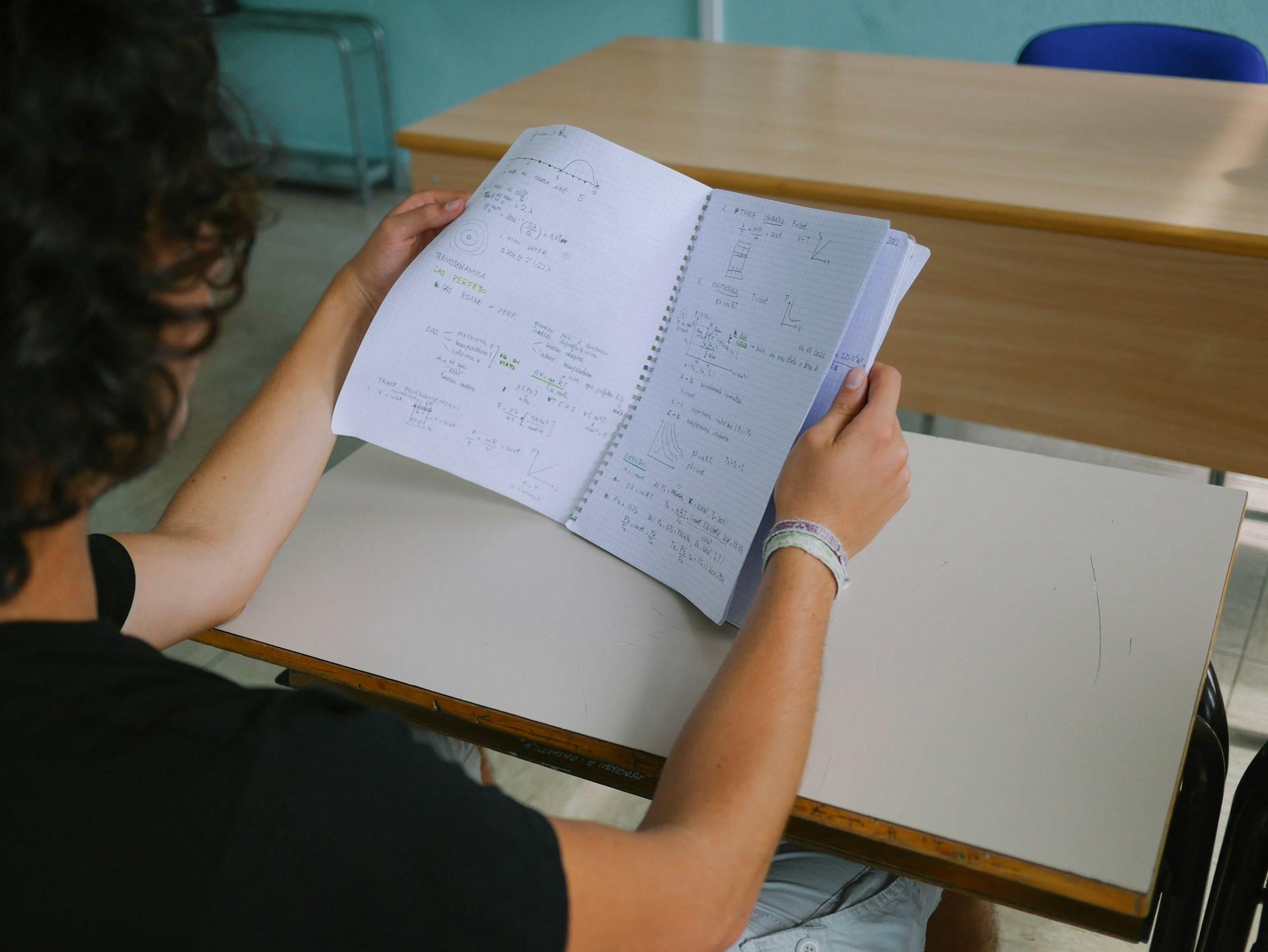Economics is a ponderous topic that many schools don't offer at the GCSE level. Or before Years 9 and 10, for that matter. That means you're going into this subject with no prior knowledge of it.
In many ways, that makes your study and revision easier. You won't struggle to remember what you learned before and try to match it with what you're studying now. Furthermore, you chose this GCSE subject so you probably have an interest in learning about economics and how markets work. Your buy-in will make it easier for you to master these concepts.
That sounds encouraging but how can you make sure you'll earn good marks on your exams? Like all your other GCSEs, you'll revise, go over past papers and marking schemes, and challenge yourself with mock exams. Where to find Economics GCSE past papers is the obvious next question but it's not so easily answered. You need to know:
- where to find genuine GCSE Economics past papers
- which exam board's papers to download
- how to use these papers for maximum benefit
- what to watch out for when you search for past papers and marking schemes
Maybe your teacher has answered some of these questions already. Or perhaps all of this information got lost in the flurry of beginning a new school year. Superprof presents this guide should you need a reminder - and in case you've not heard it before.

Finding Economics GCSE Past Papers
Simply typing in Economics GCSE past papers into your search engine will return a long list of such titles. You might notice some of them direct you to companies that sell revision materials. Buying workbooks and practice papers is an option, of course. But why spend money when you can download full complements for free?
Often, you'll only find past papers and marking schemes on such sites. These merchants don't make available the vital third revision component: the examiner's report. This document details examiners' observations of student performance.
Once all the exams are marked, the examiners draft a summary of trends they found in test-takers' answers. Question by question, they discuss what the students did well, where they lagged and how future students can earn higher marks. Reviewing this paper before you begin your studies points you to the pitfalls past students failed to avoid. You might consider this report your roadmap to exam success.
Before you can download any set of papers, you must know which exam you'll sit. Unlike other GCSE subjects, only two exam boards offer Economics GCSE: AQA and OCR.
The papers test students on the same economic concepts but each exam board has its own style and format. The AQA exam is a bit more demanding than OCR's. It poses five extended-response questions designed to test your ability to apply economic concepts. By contrast, OCR poses twice as many multiple-choice questions and only three extended-response queries.
We'll talk more about each exam board's papers and their particulars in the next sections. Now, let's cover another source for past papers: a private tutor.
Once you know which exam board to study for, you can narrow your tutor search to those that specialise in that paper's exam preparation. These test prep tutors can mentor you through all the GCSE Economics topics you need to know. As your exam day approaches, they will oversee your mock exams and critique your performance. They will also advise on test-taking strategies to ensure exam success.

OCR GCSE Economics Past Papers
As you read the previous segment, you might have concluded that the Oxford, Cambridge and RSA (OCR) website is the best source for that exam board's papers. On that page, you'll find four sets of papers, two each for June and November assessments. Scrolling past those pull-down menus, you'll discover four uncategorised documents; these too will help your revision.
As noted above, the OCR papers appear a bit easier. OCR test takers will sit two papers, as will AQA test takers. However, the OCR papers are each allotted only 90 minutes. Each paper lists 20 multiple-choice questions and three extended response questions.
Paper 1 tests you on general economic concepts and terms. You'll apply your knowledge of economic agents and how they interact, as well as money's role and market functions. Your second paper covers national and global economics. You'll discuss the government's role in formulating economic objectives and the importance of trade in the global economy.
The 2022 paper's examiner report highlights students' inability to answer all of the questions. It emphasises that poor time management was the cause, not a lack of knowledge. However, it does indicate that students appeared to not have mastered all of the economic concepts this paper tested them on.
Downloading this exam board's papers from the OCR site offers more advantages. The page's left side includes several links to give you a better overview of this exam's specifications. There, you'll get a short synopsis of each component. The OCR site is one of the best resources for preparing to sit this exam.

AQA GCSE Economics Past Papers
Begin with the end in mind.
Stephen Covey, motivational speaker
Beginning your exam revision by reading examiners' reports means putting Mr Covey's good advice into practice. Learning from other students' mistakes is the best way to find exam success. If you're sitting the AQA GCSE Economics, you too can access these reports.
On the AQA website, you'll also discover 6 years of past exam papers, along with their mark schemes. This expanded selection gives you more information to work with - and work on. For instance, you might compare papers from different years to spot changes in their style and format. You can also comb through them to analyse changes in vocabulary and the types of questions asked.
As noted above, the AQA GCSE Economics poses five extended-response questions per paper. The trade-off is having only 10 multiple-choice questions to answer. AQA allows 105 minutes for each paper, perhaps to accommodate those longer responses. Notably, those examiners' reports don't comment on unfinished papers or time management.
However, they do mention advance information, a benefit the OCR-targeted courses are less forthcoming with. This year, neither exam board provides advance information for GCSE Economics. You must rely on your own revision strategies to know and understand your subject material.
Like the OCR papers, you'll test on two broad economics concepts: microeconomics and macroeconomics. Your first paper will differ in style and format from the other exam board's but it addresses the same topics. Expect questions about fundamental economics concepts and their real-world applications.
Your next paper will also address the role of government, markets and globalisation. However, this exam board's paper goes far deeper into these topics. For instance, you'll face questions about wealth and income inequality and the government's ethical considerations in allocating resources. Discussing these aspects with your tutor is the best way to prepare for this GCSE Economics.

Are Economics Mock Exams Important?
After months of dedicating yourself to your studies, you know your subject material inside and out. You've gone over the examiners' reports several times, referring to them as you analysed past papers and marking schemes.
You've whipped through a couple of those papers; it feels like you have this GCSE qualification all sewn up. Do you need to do any mock exams?
We hope you answered 'yes'. Time management is a crucial aspect of exam success, even for the more generous AQA exam. At least, you need to know what it feels like to spend 105 (or 90) minutes answering economics questions.
You might like to plan how long you'll need to read through the paper before you start answering questions. You should certainly factor in time to review your answers before handing your paper in. Practice exams can help you calibrate your performance so that, come test day, you know exactly how you'll operate.
Mock exams help you determine your test-taking strategy. Some students prefer to zip through the multiple-choice questions so they can take their time on their more detailed responses. Others prefer to start with the greater challenges and then answer the multiple-choice questions. This test-taker prefers to answer questions I'm certain of first, and then linger over the ones I'm doubtful of - regardless of format.
You should plan room in your revision schedule for several mock exams. This gives you a chance to try every test-taking strategy as you review your knowledge and understanding of economic principles. Once you settle on the method that works best for you, practice it until just before test day.
You needn't worry about running out of past papers to test yourself with. As both exam boards cover the same economic principles, you may practice with papers from both. However, you should keep your timer set to the limit your exam board specifies. That way, you don't lose track of time when you're sitting your exam.
Mock exams are the last step in your GCSE Economics revision. However, you must have exam papers to practise with. Now, you know where to find them.
Summarise with AI:















